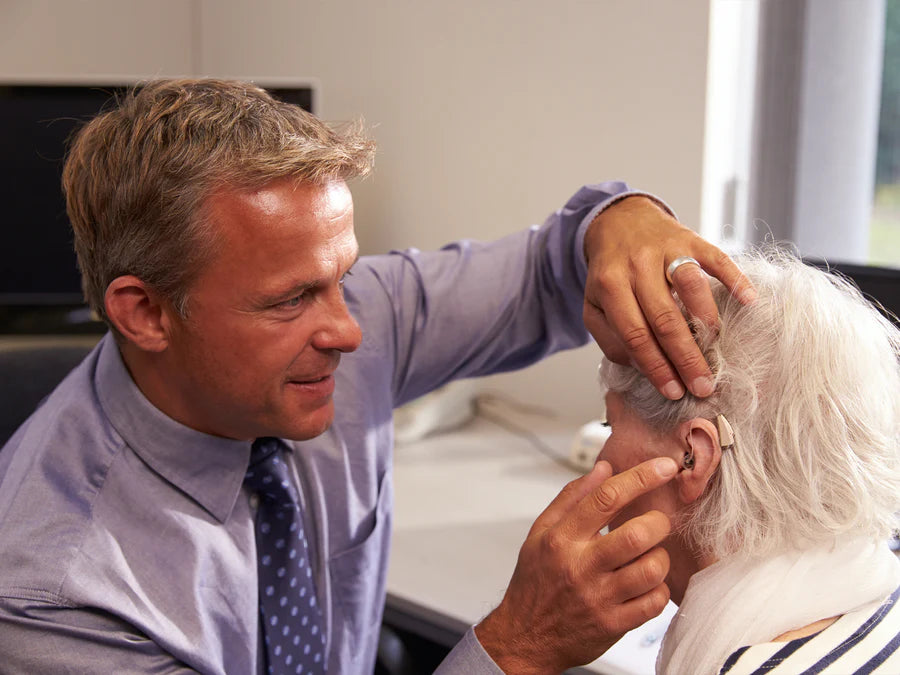Most of us relate hearing loss to the elderly and that the risk of hearing loss grows with age. However, for several reasons, hearing loss can also strike younger adults. Approximately 8% of Americans around the ages of 32 and 50 have substantial hearing loss, with symptoms beginning as early as age 19.
According to research, over 12% of individuals aged 18 to 39 report trouble following a conversation among background noise, while approximately 6% experience ringing in the ears, sometimes known as tinnitus. These percentages rise as people get older.
This affects one's well-being. According to the study, young adults who suffer from hearing loss are more likely to have poor employment prospects, low worker productivity, and higher cost of health care.
What Causes Hearing Loss In Young Adults?
The same factor that contributes to hearing loss in older folks is one of the most frequent factors in younger people: noise exposure. Due to various factors, including activities like concerts, exposure to noise pollution, and industrial noise, millions of teenagers and young people in the US have been exposed to harmful sound levels.
Other causes include Otosclerosis, which is abnormal bone growth in the ear, as well as heredity, diabetes, hypertension, exposure to ototoxic medicines (pharmaceuticals linked to deafness), viral or bacterial infections, and high blood pressure.
Noise-Induced Hearing Loss
The main cause of hearing loss in young adults is noise-induced hearing loss. This issue makes it difficult for the affected person to detect high-pitched sounds accurately. Noise-induced hearing loss often does not affect a person's ability to hear voices, but it can make it difficult for them to understand what has just been spoken. The issue is more common in noisy environments with much distracting background noise.
Young adults with this problem might not become aware of it for long because noise-induced hearing loss is typically gradual. Tinnitus is the medical terminology for ringing in the ears. Tinnitus is a typical sign of hearing loss brought on by frequent exposure to loud noise.
How Young Adults Can Protect Their Hearing
The first step in protecting young people's hearing is to dispel the myth that hearing loss cannot happen to them. Once individuals acknowledge the likelihood of early-onset hearing loss, they are considerably more inclined to take proactive measures to avoid it. This advice ought to be useful:
- Before purchasing any equipment or devices, look for low noise ratings.
- When possible, try to minimize loud noise. Anytime someone has to shout to be heard over the noise, the atmosphere is too loud.
- When avoiding a loud area is impossible, wear hearing protection like earplugs or noise-canceling headphones.
- Clean your ears frequently to eliminate earwax that might accumulate and affect your hearing. The most effective method of cleaning ears is to utilize an irrigation kit, which softens ear wax so that it can be easily removed with a damp cloth. However, anyone who uses one and still experiences earwax buildup should see a doctor.
If a young person has a family history of early hearing loss, is frequently exposed to loud noises, experiences ringing in the ears, or struggles to hear the appropriate words in conversations, they should not hesitate to schedule a hearing test with an audiologist.
Hearing Aids – The Aid to a Healthy Lifestyle
Hearing aids have a significant impact on the mental health of today's youth. According to one study, while hearing loss is related to an increased risk of depression in adults of all ages, it is most common in young adults. While hearing aids help all users, it appears that young people have the most benefit when it comes to preventing depression; usage of hearing aids can result in reduced depressive symptoms, increased social engagement, and an overall higher quality of life. In other words, hearing aids are beneficial to your health.
The good news is that folks in their twenties and thirties have a substantial advantage regarding hearing loss. Getting it recognized and treated sooner may allow them to protect what little hearing they have left and avoid anything that could cause further loss. It is crucial to preserve your residual hearing.










2 commenti
Selma
I like it whenever people get together and share ideas.
Great site, stick woth it! https://www.waste-ndc.pro/community/profile/tressa79906983/
Selma
I like it whenever perople get together and share ideas.
Great site, stick with it! https://www.waste-ndc.pro/community/profile/tressa79906983/
Commenta
Questo sito è protetto da hCaptcha e applica le Norme sulla privacy e i Termini di servizio di hCaptcha.